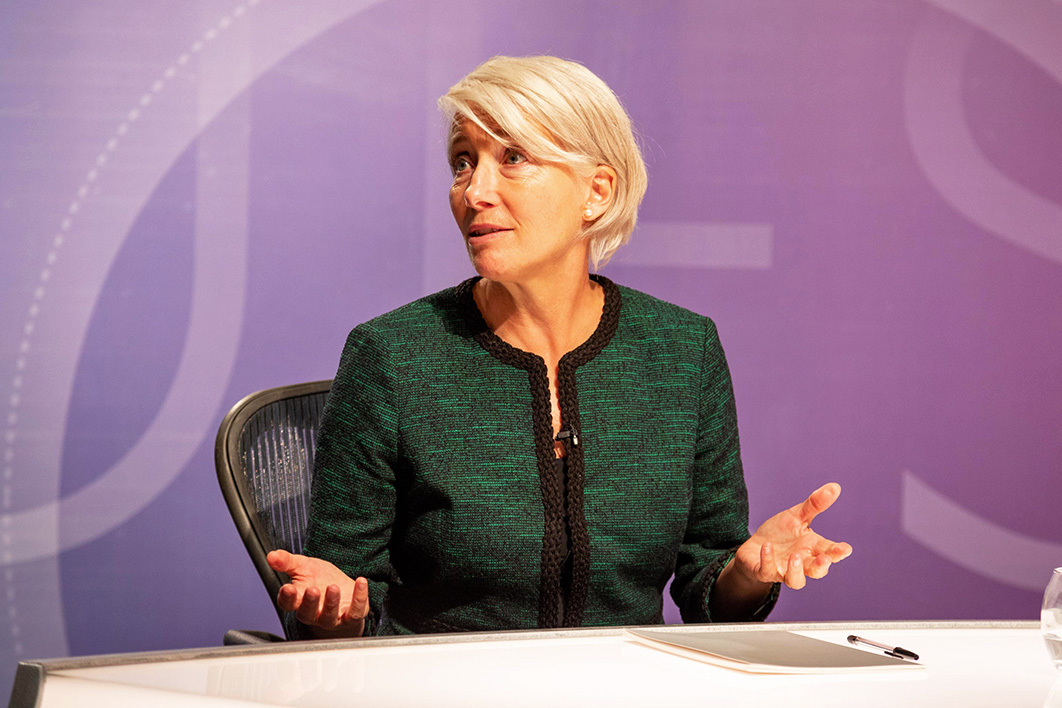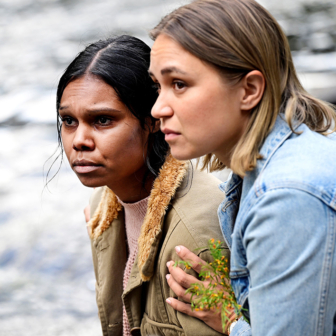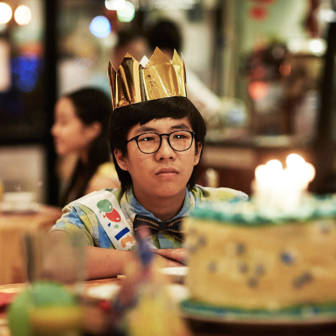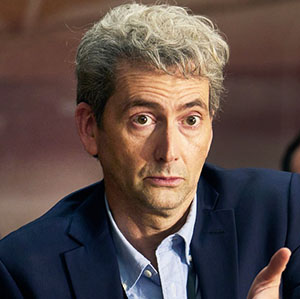The time is out of joint. Many of us have had that feeling during 2019, sometimes accompanied by an instinct to retreat from news broadcasts to the imagined worlds of television drama — though, as is often the case, the best of them tend to reflect on the worst of the real world.
In the Shakespearean tradition, great dramas are spun from points at which structures of power come unhinged. In the fallout, all manner of human ambitions and motivations come to the fore. Bonds are broken and loyalties realigned, while those at the centre of it all try to wrestle with great philosophical questions about fate and the order of nature.
Game of Thrones, by the far the most ambitious television series to date, sustained its dramatic power through seven seasons. A cast of over twenty principals set new standards in television acting. The cinematography challenged the limits of the small screen and made many of us buy bigger ones. Ramin Djawadi’s music supported the mythic stature of a vast narrative design, and show-runners David Benioff and D.B. Weiss kept on delivering the goods.
And then, in season eight, they had to resolve it all in just six episodes. The consensus among critics is that this didn’t work. How could it? We were used to having lead characters abruptly killed off — the very first season set us up for that — but there were just too many lifelines to tie up or sever. And yet. Watching it again, with anticipations laid to rest, I’m impressed by how much it does deliver: the control of tone and pace, the orchestration of the great battle scenes, the genuine substance of the dialogue as human intelligence sparks to break the deadlock in critical negotiations. Or fails to do so.
The council scene, in which the remaining stakeholders in the main game converge to decide who should sit on the iron throne, has ironic resonances. “Perhaps,” ventures Samwell Tarly, the Everyman character, “the decision about what’s left to everyone should be left to everyone.” Anyone watching the playout of last week’s election in Britain might be prompted to join in the round of contemptuous guffaws with which the suggestion is greeted.
When it comes to elections, pundits always speak too soon, while the wheel’s still in spin. But when the wheel spins right of its axis, to land who knows where, all bets are off. “Things fall apart; the centre cannot hold,” wrote W.B. Yeats, reflecting on the state of Ireland as further dark prospects loomed on the horizon in the aftermath of the first world war. A century later, the image evokes the state of things in Britain, and England in particular.
The Manchester-set BBC/HBO series Years and Years (SBS On Demand), envisages England in the near future, when the country has descended a few more steps into the social and economic turmoil that has already taken hold. This is no dystopic fantasy, and the inventive aspects of the scenario are kept on a tight leash. In the first episode, we jump just five years on, to 2024, and from there the storylines proceed year by year to 2029.
Events spin out in many directions, but writer Russell T. Davies anchors the narrative by following the fortunes of the Lyons family — Stephen, Edith, Daniel and Rosie, and their children and partners. Stephen (Rory Kinnear) loses all his wealth in a bank collapse and falls into a downward spiral as he struggles to make a living in the ever more stringent and adversarial gig economy. His teenaged daughter Bethany (Lydia West) is involved in early experiments with biologically implanted communications systems. Daniel (Russell Tovey) develops an impassioned relationship with Viktor (Maxim Baldry), a refugee from Ukraine, and uses some dangerous moves to get him back into the country after he’s deported.
Edith (Jessica Hynes) is a political activist who engages in internet sabotage, while Rosie (Ruth Madeley) falls under the spell of a rising demagogue. As the years roll on, Vivienne Rook (Emma Thompson) makes the transition from the maverick outsider making outrageous statements on television panels, to local candidate, to party leader with the balance of power and thence, inevitably, to prime minister.
The inevitability is in the dramaturgy; in reality there are pitfalls between those steps, as we’ve seen in the careers of Pauline Hanson or Nigel Farage. And, as several recent elections have proved, the most unhinged contenders for head of state are emerging from the major parties. It is the only significant aspect of the predictive exercise that the series gets wrong. But Emma Thompson’s performance — an all-too-credible mix of the earnest and comedic, of preposterous suggestion and downright common sense — is one of her best.
Heads of state, media moguls and captains of industry continue to feature prominently in television series. Clearly, the viewing public is fascinated by the lead players in the power games. Succession explores the mystique through another family drama, featuring a dynastic battle for control of a corporate media empire, Waystar Royco. Yes, the parallels with the Murdoch family are obvious, but the series is so much more than a veiled dramatisation.
A sophisticated plot design sets the four adult siblings in conflict, first with each other but ultimately with their father, who plays each of them even as he holds them together in some fierce bond. Is it blood loyalty, common destiny or a tangle of self-interest that binds them? Brian Cox as ageing mogul Logan Roy heads a superb cast, with outstanding performances from Jeremy Strong as the melancholic elder son Kendell and Kieran Culkin as his brother Roman, who talks like a stand-up comic on crack but increasingly defies expectation as season two progresses towards its cliffhanger finale.
Jesse Armstrong’s compelling script is aided by a musical score that communicates as eloquently as the dialogue. Described by composer Nicholas Britell as “dark, courtly classical music crossed with hip hop beats,” it is dominated by an accelerando piano theme that promises melody but almost immediately veers off course.
A very different approach to theme music is taken in ABC’s Total Control, where a sequence of original songs by Missy Higgins and others works to establish thematic keynotes. Hard-hitting lyrics break the convention of theme music as an instrumental support to the dramatic line.
Alex Irving (Deborah Mailman), an Indigenous woman from the remote community of Winton, is parachuted into the Senate following a display of what looks like total control in a local shooting incident. But early on, she announces, “I’m sick and tired of pretending I’m okay.”
As she continues on a rollercoaster ride through events in which she was supposed to be a pawn, Alex’s emotional instability amplifies the human impact of the games being played in Canberra. Prime minister Rachel Anderson (Rachel Griffiths), who likewise appears in total control at the outset, falls victim to a party coup. The Canberra storyline is resolved in a rather hackneyed manipulation of plotlines, but the events played out in Winton have more depths of field, and carry potential for a planned sequel.
While it’s been another good year for complex drama, lighter forms of entertainment were harder to come by. Killing Eve, hugely entertaining in its first season, overplayed its hand in season two and risked killing off a comedic edge that depended on eruptions of lunacy embedded in a carefully structured plot. If there is a plot in this latest venture, it’s not worth following.
Killing Eve is one of two stellar creations from scriptwriter Phoebe Waller-Bridge, whose comedy series Fleabag has been throwing all other contenders into the shade at awards ceremonies. Comedy it may be — and yes, it’s very funny — but Fleabag is never exactly fun. Waller-Bridge plays the title role herself, portraying a woman whose surface charm and glamour barely conceal the misery of someone who is falling apart. Her incessant sexual encounters leave her not so much exposed as flayed. It is at times very confronting, but season two, which I was able to see in England earlier this year, lifts the mood by introducing a new suitor who actually falls in love with her. Known to his rapidly growing fan-base as “the hot priest,” he’s played with off-beat allure by Andrew Scott. Look out for it next year. •




